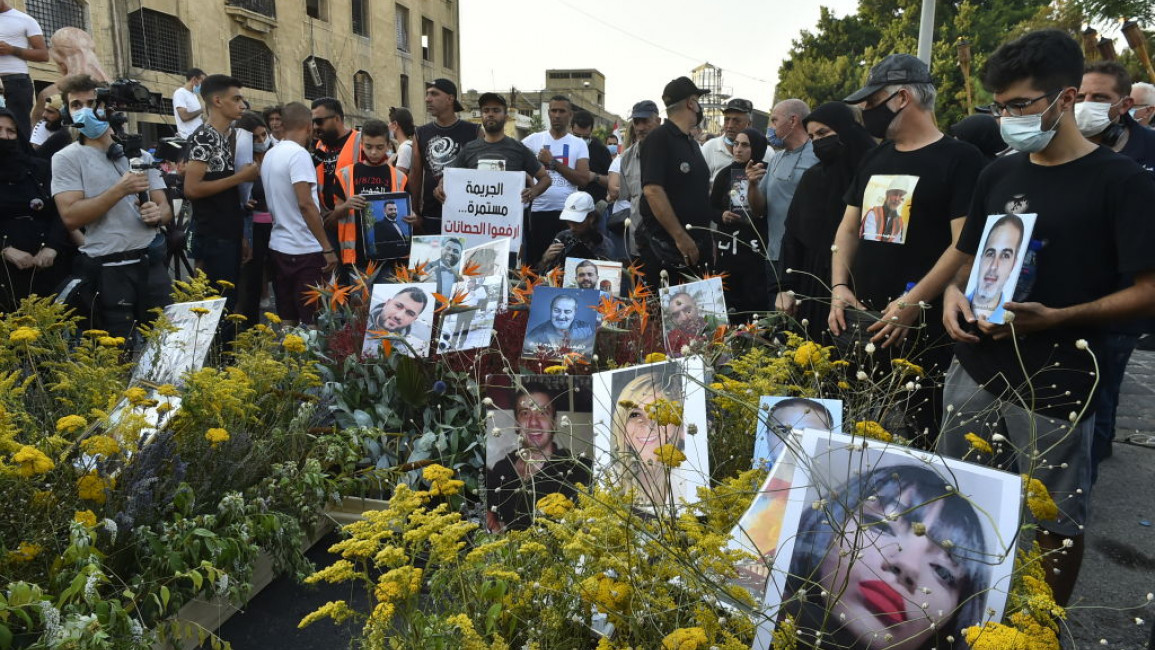
Why the Beirut port explosion needs an international inquiry
When a stockpile of ammonium nitrate exploded in the Port of Beirut in August 2020, creating one of the largest non-nuclear blasts in recent memory, the world did nothing to find out why this happened.
As a UN special rapporteur, I, along with 36 of my other colleagues, issued a joint statement calling upon the Lebanese government and international community to effectively respond to calls for justice and restitution. The anniversary of the blast came and went, and still nothing happened.
"A new government was just formed on September 10, but nothing is likely to change. The cause of the explosion stems from the structural problems of the Lebanese political system and oligarchy"
But last week the European Parliament passed a resolution calling for an "independent international fact-finding mission to Lebanon to investigate the Beirut explosion within the framework of the UN." This was the first official response to the survivors' and victims' families, firefighters' families, and 50 organisations' call for an international investigation.
The UN Human Rights Council is the ideal institution to authorise an international investigation. Not only can it send independent technical experts, but also it is multilateral and made up of a rotation of 47 countries reflecting all the regions of the world.
At the current session, the UN Human Rights Chief Michelle Bachelet highlighted the dire situation in Lebanon. Nevertheless, the window of opportunity is closing for this session, which ends on 8 October. With the recent EU Parliamentary resolution, there is hope that this may be addressed at the next session in March.
|
What ignited the ammonium nitrate is still unknown. Local journalists and human rights researchers have compiled a detailed record of which high-level authorities knew about the ammonium nitrate and how those authorities responded to information about its poor handling and storage.
Meanwhile, though, parliament has blocked Lebanese investigative judges from prosecuting former ministers for homicide and criminal negligence, and authorities have refused to allow for the prosecution of high-level security officials implicated in the blast.
The blast killed more than 200 people, including people from at least 12 countries, and wounded 7,000 people, leaving at least 150 with a permanent disability. The blast also damaged 77,000 apartments, forcibly displacing over 300,000 people. It injured 1,000 children and left 80,000 children homeless. According to the World Bank, it caused an estimated US$ 3.8-4.6bn in material damage. The blast decimated people’s access to food since Lebanon imports up to 80% of its food and the Port of Beirut was the country's principal entry point.
The port explosion, however, was the result of more than just individual acts and negligence. After the explosion, the entire Lebanese government resigned. For over a year, the country remained without a government. A new government was just formed on September 10, but nothing is likely to change. The cause of the explosion stems from the structural problems of the Lebanese political system and oligarchy.
The explosion occurred while the country is in the midst of what the World Bank has described as a prolonged and "deliberate depression" caused by the authorities themselves. The World Bank has also described the situation in Lebanon as one of the deepest depressions in modern times. People are living without food, fuel, electricity, medicine and clean water.
The Lebanese Pound has lost 90% of its value, prices of basic goods have quadrupled, completely depleting people's purchasing power. According to a recent UN report, an estimated 74% of the total population has plunged into poverty; inflation soared to 281% between June 2019 and June 2021.
How then can people expect justice from politicians that have benefited from the very system that created the problems? In Lebanon, there is leadership, but it is not among the political class. The survivors and families of the people killed in the blast have come together and organised. They have led campaigns, made collective statements, and demonstrated in the streets. Security forces responded to families' demands for truth and justice with tear gas and beatings.
"How then can people expect justice from politicians that have benefited from the very system that created the problems?"
There is a wrinkle in the EU Parliamentary resolution - the EU wants the Lebanese government to enact deep economic and governance reforms before providing any financial assistance. As part of this requirement, the European Parliament also called on the Lebanese authorities to resume talks with the IMF as soon as possible and to implement prior commitments made in the context of the Economic Conference for Development through Reforms with the Private sector (CEDRE).
While deep reforms are necessary and would provide much-needed stability, what complicates matters is that the IMF conditions that come with its loans have often hurt countries more than helped. And the CEDRE loan does not provide clear benefits to most people in Lebanon.
An investigation authorised by an international body and based on human rights could enable Lebanese judicial authorities to hold local leaders accountable. Such an investigation could also give people the energy they need to ensure that any international financial support prioritises people's human rights and meets their immediate needs.
Michael Fakhri is the UN Special Rapporteur on the Right to Food. He is also a Professor at the University of Oregon School of Law.
Follow him on Twitter: @MichaelFakhri
Opinions expressed in this article remain those of the author and do not necessarily represent those of The New Arab, its editorial board or staff.



